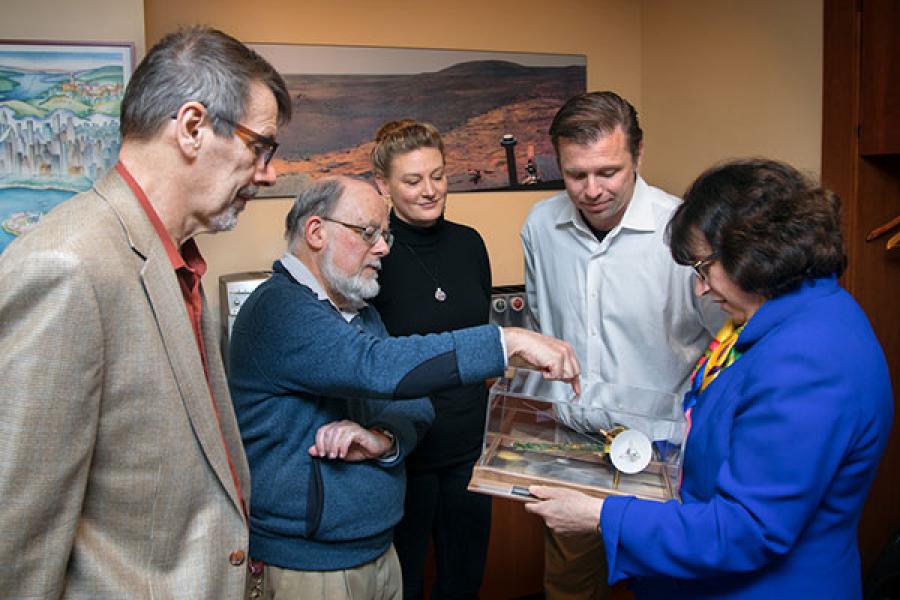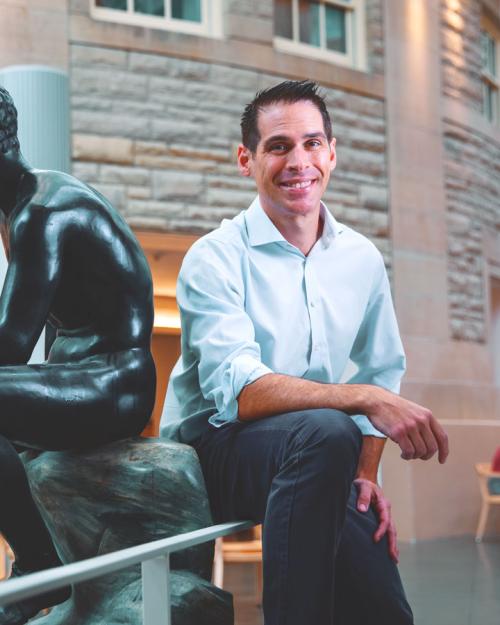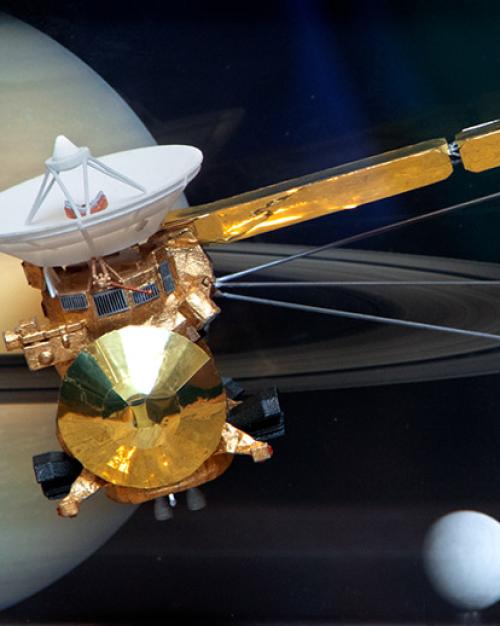NASA’s Cassini spacecraft dramatically ended its scientific explorations just three weeks after Martha E. Pollack was installed as Cornell's 14th president on Aug. 25. As an inauguration gift, the Cornell Center for Astrophysics and Planetary Science (CCAPS), the Department of Astronomy, and the Spacecraft Planetary Image Facility (SPIF) presented President Pollack with a model of Cassini on Feb. 16 in Day Hall, commemorating three decades of Cornell participation in Cassini’s historic mission.
The 3-D printed Cassini model was finished in gold leaf by Raven Arts in collaboration with SPIF. The model’s background, an image of Saturn and its moons, represents the unexpected discoveries Cassini made of the Saturn system.
Pres. Pollack, accepting the gift, called the model “gorgeous,” adding, “Thank you so much. It will definitely be in a place of honor in my office.”
From left: Terry Herter, Phil Nicholson, Zoe Ponterio, Alex Hayes, Martha Pollack. Credit: Jason Koski, University Photography
The astronomers making the presentation – Terry Herter, chair and professor of astronomy; Phil Nicholson, professor of astronomy and acting director of CCAPS; Alex Hayes ’03, M.Eng. ’04, assistant professor of astronomy and director of SPIF; and Zoe Ponterio, manager of SPIF – shared some of the highlights of the Cassini mission with Pres. Pollack. They noted the mission’s multi-generational nature; Nicholson, for example, became a member of the Cassini science team in 1991.
The Cassini mission was a paradigm shift in space exploration, said Hayes. Because of its discoveries, astronomers now believe that Saturn's moons Titan and Enceladus may harbor environments suitable to life as we know it (and in Titan’s case, also perhaps life as we don’t). For the first time, it’s possible to build spacecraft that can answer the question of whether life exists outside of earth.
A version of this article also appeared in the Cornell Chronicle.





